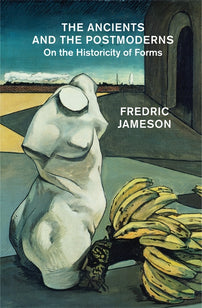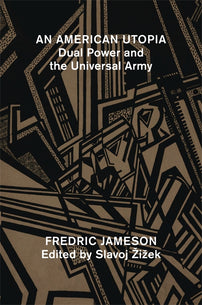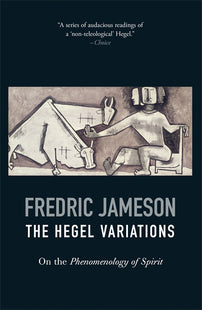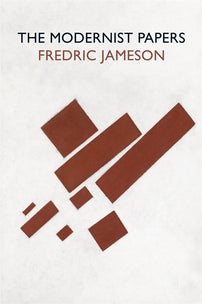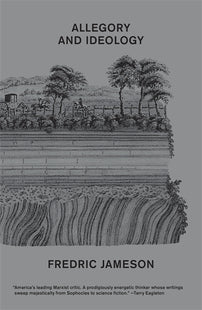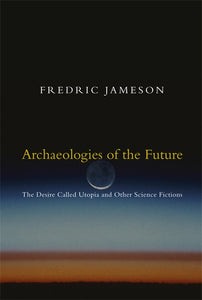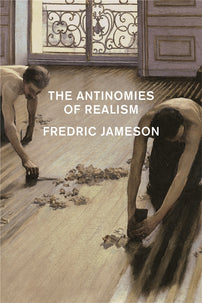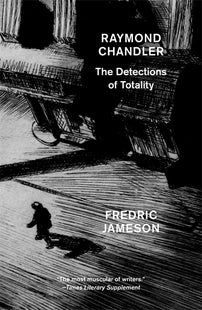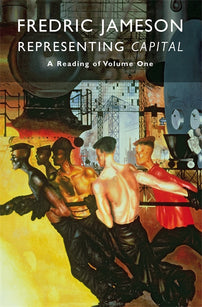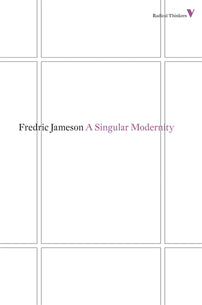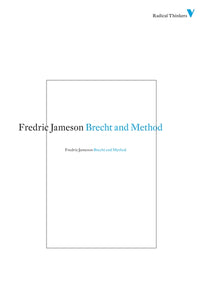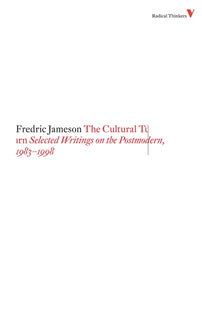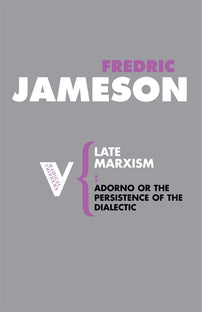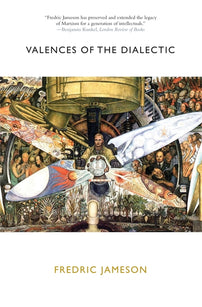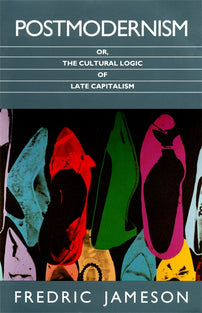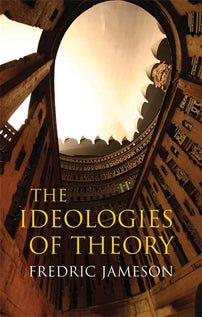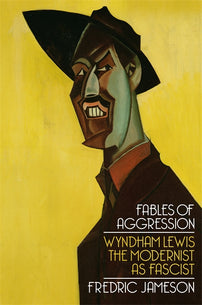Fredric Jameson Bookshelf
Complete your Fredric Jameson bookshelf with this reading list! All 40% off (print books) and 60% off (ebooks) until January 4th.

Few radical thinkers have made such an incredible impact on literary criticism, critical theory, and philosophy as Fredric Jameson. We collected some of his best work on modernism, Benjamin, Hegel, and more below.
Until January 4 (2022), at 23.59 EST, we have 40% off ALL our print books and 60% off all our ebooks (see full details here)! See all our reading guides here.
[book-strip index="1" style="buy"]The Benjamin Files offers a comprehensive new reading of all of Benjamin’s major works and a great number of his shorter book reviews, notes and letters. Its premise is that Benjamin was an anti-philosophical, anti-systematic thinker whose conceptual interests also felt the gravitational pull of his vocation as a writer. What resulted was a coexistence or variety of language fields and thematic codes which overlapped and often seemed to contradict each other: a view which will allow us to clarify the much-debated tension in his works between the mystical or theological side of Benjamin and his political or historical inclination.
[book-strip index="2" style="buy"]High modernism is now as far from us as antiquity was for the Renaissance. Such is the premise of Fredric Jameson’s major new work in which modernist works, this time in painting and music, are pitted against late-modernist ones (in film) as well as a variety of postmodern experiments: all of which attempt, in their different ways, to invent new forms to grasp a specific social totality. Throughout these historical periods, argues Jameson, the question of narrative persists through its multiple formal changes and metamorphoses.
[book-strip index="3" style="buy"]Fredric Jameson’s pathbreaking essay “An American Utopia” radically questions standard leftist notions of what constitutes an emancipated society. Advocated here are—among other things—universal conscription, the full acknowledgment of envy and resentment as a fundamental challenge to any communist society, and the acceptance that the division between work and leisure cannot be overcome. To create a new world, we must first change the way we envision the world. Jameson’s text is ideally placed to trigger a debate on the alternatives to global capitalism. In addition to Jameson’s essay, the volume includes responses from philosophers and political and cultural analysts, as well as an epilogue from Jameson himself.
[book-strip index="4" style="buy"]In this major new study, the philosopher and cultural theorist Fredric Jameson offers a new reading of Hegel’s foundational text Phenomenology of Spirit. In contrast to those who see the Phenomenology as a closed system ending with Absolute Spirit, Jameson’s reading presents an open work in which Hegel has not yet reconstituted himself in terms of a systematic philosophy (Hegelianism) and in which the moments of the dialectic and its levels have not yet been formalized. Hegel’s text executes a dazzling variety of changes on conceptual relationships, in terms with are never allowed to freeze over and become reified in purely philosophical named concepts. The ending, on the aftermath of the French Revolution, is interpreted by Jameson, contra Fukuyama’s “end of history,” as a provisional stalemate between the political and the social, which is here extrapolated to our own time.
[book-strip index="5" style="buy"]The Modernist Papers is a tour de force of analysis and criticism, in which Jameson brings his dynamic and acute thought to bear on the modernist literature of the nineteenth and twentieth centuries. Jameson discusses modernist poetics, including intensive discussions of the work of Baudelaire, Rimbaud, Mallarmé, Wallace Stevens, Joyce, Proust, and Thomas Mann. He explores the peculiarities of the American literary field, taking in William Carlos Williams and the American epic, and examines the language theories of Gertrude Stein. Refusing to see modernism as simply a Western phenomenon, he also pays close attention to its Japanese expression, while the complexities of a late modernist representation of twentieth-century politics are articulated in a concluding section on Peter Weiss’s novel The Aesthetics of Resistance.
[book-strip index="6" style="buy"]This major new work by Fredric Jameson is not a book about “method,” but it does propose a dialectic capable of holding together in one breath the heterogeneities that reflect our biological individualities, our submersion in collective history and class struggle, and our alienation to a disembodied new world of information and abstraction. Eschewing the arid secularities of philosophy, Walter Benjamin once recommended the alternative of the rich figurality of an older theology; in that spirit we here return to the antiquated Ptolemaic systems of ancient allegory and its multiple levels (a proposal first sketched out in The Political Unconscious); it is tested against the epic complexities of the overtly allegorical works of Dante, Spenser and the Goethe of Faust II, as well as symphonic form in music, and the structure of the novel, postmodern as well as Third World (about which a controversial essay on national allegory is here reprinted with a theoretical commentary); and an allegorical history of emotion is meanwhile rehearsed from its contemporary, geopolitical context.
[book-strip index="7" style="buy"]In an age of globalization characterized by the dizzying technologies of the First World, and the social disintegration of the Third, is the concept of utopia still meaningful? Archaeologies of the Future, Jameson’s most substantial work since Postmodernism, Or, the Cultural Logic of Late Capitalism, investigates the development of this form since Thomas More, and interrogates the functions of utopian thinking in a post-Communist age. The relationship between utopia and science fiction is explored through the representations of otherness … alien life and alien worlds … and a study of the works of Philip K. Dick, Ursula LeGuin, William Gibson, Brian Aldiss, Kim Stanley Robinson and more. Jameson’s essential essays, including “The Desire Called Utopia,” conclude with an examination of the opposing positions on utopia and an assessment of its political value today.
[book-strip index="8" style="buy"]The Antinomies of Realism is a history of the nineteenth-century realist novel and its legacy told without a glimmer of nostalgia for artistic achievements that the movement of history makes it impossible to recreate. The works of Zola, Tolstoy, Pérez Galdós, and George Eliot are in the most profound sense inimitable, yet continue to dominate the novel form to this day. Novels to emerge since struggle to reconcile the social conditions of their own creation with the history of this mode of writing: the so-called modernist novel is one attempted solution to this conflict, as is the ever-more impoverished variety of commercial narratives—what today’s book reviewers dub “serious novels,” which are an attempt at the impossible endeavor to roll back the past.
[book-strip index="9" style="buy"]Raymond Chandler, a dazzling stylist and portrayer of American life, holds a unique place in literary history, straddling both pulp fiction and modernism. With The Big Sleep, published in 1939, he left an indelible imprint on the detective novel. Fredric Jameson offers an interpretation of Chandler’s work that reconstructs both the context in which it was written and the social world or totality it projects. Chandler’s invariable setting, Los Angeles, appears both as a microcosm of the United States and a prefiguration of its future: a megalopolis uniquely distributed by an unpromising nature into a variety of distinct neighborhoods and private worlds. But this essentially urban and spatial work seems also to be drawn towards a vacuum, an absence that is nothing other than death. With Chandler, the thriller genre becomes metaphysical.
[book-strip index="10" style="buy"]Representing Capital, Fredric Jameson's first book-length engagement with Marx's magnum opus, is a unique work of scholarship that records the progression of Marx's thought as if it were a musical score. The textual landscape that emerges is the setting for paradoxes and contradictions that struggle toward resolution, giving rise to new antinomies and a new forward movement. These immense segments overlap each other to combine and develop on new levels in the same way that capital itself does, stumbling against obstacles that it overcomes by progressive expansions, which are in themselves so many leaps into the unknown.
[book-strip index="11" style="buy"]
The extraordinary revival of discussions of modernity, as well as of new theories of artistic modernism, demands attention in its own right. It seems clear that the (provisional) disappearance of alternatives to capitalism plays its part in the universal attempt to revive 'modernity' as a social ideal. Yet the paradoxes of the concept illustrate its legitimate history and suggest some rules for avoiding its misuse as well.
In this major interpretation of the problematic, Jameson concludes that both concepts are tainted, but nonetheless yield clues as to the nature of the phenomena they purported to theorize. His judicious and vigilant probing of both terms—which can probably not be banished at this late date—helps us clarify our present political and artistic situations.
Jameson sees Brecht's method as a multi-layered process of reflection and self-reflection, reference and self-reference, which tears open a gap for individuals to situate themselves historically, to think about themselves in the third person, and to use that self-projection in history as a basis for judgment. Emphasizing the themes of separation, distance, multiplicity, choice and contradiction in Brecht's entire corpus, Jameson's study engages in a dialogue with a cryptic work, unpublished in Brecht's lifetime, entitled Me-ti; Book of Twists and Turns. Jameson sees this text as key to understanding Brecht's critical reflections on dialectics and his orientally informed fascination with flow and flux, change and the non-eternal.
[book-strip index="13" style="buy"]Fredric Jameson, a leading voice on the subject of postmodernism, assembles his most powerful writings on the culture of late capitalism in this essential volume. Classic insights on pastiche, nostalgia, and architecture stand alongside essays on the status of history, theory, Marxism, and the subject in an age propelled by finance capital and endless spectacle. Surveying the debates that blazed up around his earlier essays, Jameson responds to critics and maps out the theoretical positions of postmodernism’s prominent friends and foes.
[book-strip index="14" style="buy"]In the name of an assault on “totalization” and “identity,” a number of contemporary theorists have been busily washing Marxism's dialectical and utopian projects down the plug-hole of postmodernism and “post-politics.” A case in point is recent interpretation of one of the greatest twentieth-century philosophers, Theodor Adorno. In this powerful book, Fredric Jameson proposes a radically different reading of Adorno's work, especially of his major works on philosophy and aesthetics: Negative Dialectics and Aesthetic Theory.
[book-strip index="15" style="buy"]After half a century exploring dialectical thought, renowned cultural critic Fredric Jameson presents a comprehensive study of a misunderstood yet vital strain in Western philosophy. The dialectic, the concept of the evolution of an idea through conflicts arising from its inherent contradictions, transformed two centuries of Western philosophy. To Hegel, who dominated nineteenth-century thought, it was a metaphysical system. In the works of Marx, the dialectic became a tool for materialist historical analysis.
[book-strip index="16" style="buy"]In his most wide-ranging and accessible work, Frederic Jameson argues that postmodernism is the cultural response to the latest systemic change in world capitalism. He seeks here to crystallize a definition of a term which has taken on so many meanings that it has virtually lost all historical significance.
He presents an extensive discussion on the cultural landscape - both ‘high' and ‘low' - of postmodernity, evaluating the political fortunes of the new term and surveying postmodern developments in a range of different fields - from market ideology to architecture, from painting and instalment art to contemporary punk film, from video art and high literature to deconstruction.
[book-strip index="17" style="buy"]Ideologies of Theory, updated and available for the first time in a single volume, brings together theoretical essays that span Fredric Jameson’s long career as a critic. They chart a body of work suspended by the twin poles of literary scholarship and political history, occupying a space vibrant with the tension between critical exegesis and the Marxist intellectual tradition. Jameson’s work pushes out the boundaries of the text, making evident the interaction between literature and the disciplines of psychoanalysis, philosophy and cultural theory, all of which are shown to be inseparable from their ideological milieu.
[book-strip index="18" style="buy"]In this now classic study, Fredric Jameson proposes a framework in which Lewis's explosive language practice—utterly unlike any other English or American modernism—can be grasped as a political and symbolic act. He does not, however, ask us to admire the energy of Lewis's style without confronting the inescapable and often scandalous ideological content of Lewis's works: the aggressivity and sexism, the predilection for racial and national categories, the brief flirtation with fascism, and the inveterate and cranky oppositionalism that informs his powerful polemics against virtually all the political and countercultural tendencies of his time.

